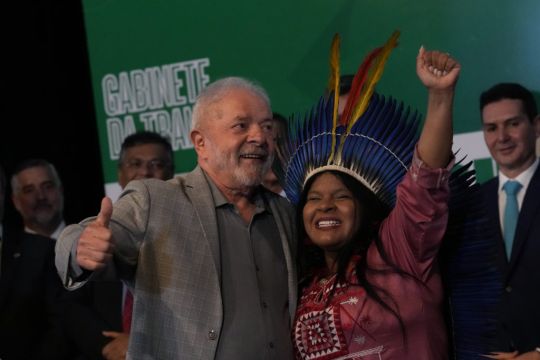Brazil’s President-elect Luiz Inacio Lula da Silva will be sworn in on Sunday in the capital of Brasilia and assume office for the third time.
It marks the culmination of a political comeback sure to thrill supporters and enrage opponents in a fiercely polarised nation.
But Mr Lula’s presidency is unlikely to be like his previous two mandates, coming after the tightest presidential race in more than three decades in Brazil and resistance to his taking office by some of his opponents, political analysts say.
The leftist defeated far-right President Jair Bolsonaro in the October 30 vote by less than two percentage points.
For months, Mr Bolsonaro had sown doubts about the reliability of Brazil’s electronic vote and his loyal supporters were reluctant to accept the loss.

Many have gathered outside military barracks since, questioning results and pleading with the armed forces to prevent Mr Lula from taking office.
Mr Bolsonaro’s most die-hard backers resorted to what some authorities and incoming members of Mr Lula’s administration labelled acts of “terrorism” – something the country had not seen since the early 1980s, and which have prompted growing security concerns about inauguration day events.
Mr Lula has made it his mission to heal the divided nation.
But he will have to do so while navigating more challenging economic conditions than he enjoyed in his first two terms, when the global commodities boom was a windfall for Brazil.

At the time, his administration’s flagship welfare programme helped lift tens of millions of impoverished people into the middle class, many Brazilians travelled abroad for the first time and he left office with a personal approval rating of 83%.
In the intervening years, Brazil’s economy plunged into two deep recessions — first, during the tenure of his handpicked successor, and then during the pandemic — and ordinary Brazilians suffered greatly.
Mr Lula has said his priorities are fighting poverty, and investing in education and health.
He has also said he will bring illegal deforestation of the Amazon to a halt.
He sought support from political moderates to form a broad front and defeat Mr Bolsonaro, then tapped some of them to serve in his Cabinet.







